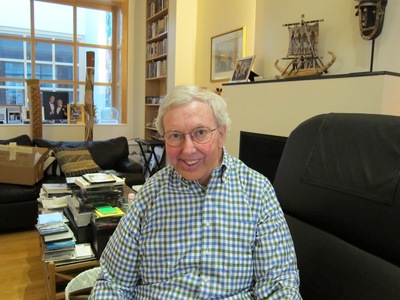
Would I want to start over with a new face? Would I like to eat, drink, talk, and look like a normal person? Even if that person were a stranger? In theory, this is now possible. I’ve been thinking of it, on and off, for the last two weeks. I regularly visit several science websites, and from New Scientist, the invaluable British magazine, I happened upon this story:
“Yesterday it emerged that a farmer in his thirties in Spain who accidentally shot away the lower part of his face has become the first person to receive an entire face transplant. According to yesterday’s press conference, he is
already recovering well. Previously, he could only breathe and eat through tubes. Now he is expected to begin relearning how to talk, eat, smile and laugh within weeks.” This didn’t involve simply placing a mask of skin over what was there, which is how I’ve always imagined such procedures. Keep reading:
“In a 24-hour operation, a team of 30 surgeons at the Vall d’Hebron University Hospital in Barcelona, Spain, led by surgeon Joan Pere Barret, started by removing what remained of the man’s face – skin, veins and arteries – leaving just his eyeballs and tongue.
“The team then replaced this with practically the entire face of a dead donor, including all the skin, muscles and nerves, the entire nose, the lips, palate, all the teeth, the cheekbones and the entire lower jaw. These were grafted by microsurgery to what remained of the patient’s own face, and the blood supply reconnected. In the final part of the operation, the surgeons transplanted bones and connecting nerves to the patient’s own face.”

In other words, I could be whole again. I have a great deal more remaining bone and tissue than the farmer had, although my mouth droops because of the removal of the mandible during cancer surgery. Both that surgery and two later ones were planned to restore my appearance to something close to normal. At first it was hoped my drinking, speaking and talking would return, for I still have my tongue and the necessary inventory in my throat. All three surgeries failed, leaving me as I am today, damaged but happy and productive. And in fact the surgery was a great success, because I appear to be cancer-free. Why should I complain?
Still…what if I had this big surgery? I’d need to undergo rehabilitation to learn to speak again, but a Cleveland doctor says one of her face transplant patients, after two years, “can say all her vowels and has such normal sensation in her face that she can feel a kiss.” This is encouraging. After the day in first grade when Sister Ambroisetta taught us to chant “A, E, I, O, U…and sometimes Y,” I never thought the day would come when I couldn’t say my vowels. But I can’t, and don’t bother asking me about my consonants.
What if I could go to Spain and return with a complete face? If you passed me on the street, you might mistake me for a normal man. Small children would no longer stare, and ask their mommies about me.
Actually, the children, I might miss. These days children look at me frankly, with natural curiosity. I smile and wave, and they often smile and wave back. I’m not your everyday face. I provide entertainment value. I believe our society has grown more tolerant of disabilities; never once has a mother snatched the child away from such a sight as me. Usually we adults just nod understandingly.

All the same, I don’t have any desire for a face transplant. I knew that even while I was still reading the New Scientist article. I knew it for so many different reasons that it was hard to sort them out. Let’s set aside medical reasons, and assume for the sake of argument that the operation would be a success. I still don’t want one.
I feel it would be an act of disloyalty to my own face. I have lived with it so long. In adolescence I studied it with fierce concentration in the mirror, convinced my nose was too long, my lips too fat, and my zits would colonize all available facial skin. Later, I saw it idealized in one of those unreal high school graduation pictures. Later still, recorded in states of hilarity during long nights of celebration and days with the friends of a lifetime. I saw my hair grow long and then longer. I saw sideburns appear and retreat. Twice I saw the beginnings of a beard and shaved it off. I saw it fatter and thinner. Siskel told me I had so many double chins I needed a bookmark to find my mouth, but by a gift of nature my chins never got really out of control. I saw my face grow smaller with diet and exercise. I saw it for the last time on the night before surgery, when I looked in a mirror and took this photograph.

For better or worse, that was my face, and today most of it remains. After a face transplant it would be somebody else’s face. I fear something within me might recoil at the sight. Oh, I have no squeamishness about wearing another man’s face after he has no need of it; I support transplants of all sorts, and when I die I hope my poor organs can be of use to someone. I wish happiness to the farmer in Spain, the woman in Ohio, and Steve Jobs with his new liver. I was tremendously moved to learn Robert Altman had lived for more than 10 years with a transplanted heart. Think of the films he was able to make, the joy he was able to bring. All of that is good. If I should someday need a heart or liver, I will seek one. But this face, however imperfect, is still mine. I own it. I look out of it. I’m rather fond of it.
For some time after taking that “final photo” of myself, I avoided looking in mirrors. I knew the first operation had gotten the cancer but the reconstruction had failed. I vaguely knew what I must look like, but I didn’t want to know. I was still inside, right here, in my head looking out, and in my mind I still had the same face. I could even feel sensations in places I no longer possessed–the “ghost limb” phenomenon.
How did I know I’m in my head? How do any of us know? That’s where my brain lives, and where my eyes sit. I am not in my chest, my hand, or my foot. I live in here, and operate all the rest like Iron Man. And in here, I still imagine the same face, no matter what you see.

Of course eventually I looked in mirrors, and grew to accept my new appearance. After the first surgery it looked…well, better than it does now. After the second surgery, Chaz said I looked pretty good. There was a vein running beneath my chin that carried a blood supply from one side of the jaw to the other. The surgeon showed my nurses a simple way to listen to the vein. If it was thrumming, it was working. It thrummed for several days. I could listen. Then it thrummed no more. The transplant broke down and was removed.
For the third surgery, I went to a famous man at a famous hospital in Houston. He labored for hours. My memory was cloudy after my surgeries, but a few days later I clearly remember Chaz holding up a mirror so I could see what looked like an acceptable version of myself. A specialist at the hospital had studied my tongue, professed herself satisfied with its motion, and told me I might even talk again. Things were looking up.
That surgery failed, too. They all failed, I believe, because of radiation damage before the first one. I sensed that my surgeons on all three procedures were personally saddened by the outcomes. I was not just a case for them. Microsurgery is painstaking, long and unimaginably difficult. I imagine the surgeon invests so much of his skill in the process that when a procedure fails, he mourns. I never thought it was their fault.
I’ve written before about how I’ve come to terms with my appearance. The best thing that happened to me was a full-page photo in Esquire, showing exactly how I look today. No point in denying it. No way to hide it. Better for it to be out there. You don’t like it, that’s your problem. I’m happy I don’t look worse. I made a simple decision to just get on with life. I was a writer, so I was lucky. There was no question I would continue reviewing movies. And when I started writing this blog, it gave me even more focus, feedback, satisfaction. I plunged into it with sometimes desperate concentration. I wrote, therefore I lived. Another surgical attempt was proposed, but I said no. Enough is enough. I would look the way I looked, and express myself in print, and I would be content.

But then something came up. After the end of my involvement with “At the Movies,” Chaz and I began planning to produce a new movie review program, true to the original values of Siskel and Ebert. We are more deeply involved in that than ever, which is all I want to say about it. Obviously I couldn’t be a regular in the balcony. The show will feature other critics. Yet I wanted to be associated in some way. Cereproc, the software company in Edinburgh, is creating a computer voice out of original voice recordings of mine. That’s coming along nicely. I began thinking I could perhaps do a segment on the show, a commentary or a DVD review. Maybe a film festival report. Maybe podcasts.
Sure I could, but how would I look? Being realistic, I believe TV viewers have a limited eagerness to gaze upon my face. One day Good Doctor Pelzer introduced me to Dr. David J. Reisberg, a professor of craniofacial medicine at the University of Illinois in Chicago. He proposed a prosthesis that would improve the appearance of my face. I told him, “Hell, Doc, everybody knows it’s messed up. I could just wear a false beard.” He smiled, said he recommended moving in another direction, and took a 3D photograph of my face. This was a rare case where 2D would not have been preferable.

Then he introduced me to David Rotter, orthotic and prosthetic director of Scheck & Siress, a company specializing in prostheses. David designed a device intended to compensate for my missing parts, and called in Julie Jordan Brown, a Milwaukee anaplastologist. I learned some new words during this adventure. They made a mold of my face and she began work as a sculptor, shaping a prosthesis which eventually came in two versions, firmer silicone and softer silicone. The two of them spent hours, working from old photos and a bust of myself an art student once made as a class project. Julie and David were working together as artists. They both had great skill and empathy. In the middle of this period, David flew to Haiti to fit some prosthetic limbs for children who had lost theirs.
In theory their prosthesis will blend with my face, and people won’t easily detect it. I won’t wear it all the time, but it will be useful for the television show. I’d rather viewers were thinking about my opinions than my chin.

Here is the New Scientist article.
Get the <a href=”http://www.widgetbox.com/widget/roger-eberts-journal-rebert”>Roger Ebert’s Journal</a> widget and many other <a href=”http://www.widgetbox.com/”>great free widgets</a> at <a href=”http://www.widgetbox.com”>Widgetbox</a>! Not seeing a widget? (<a href=”http://docs.widgetbox.com/using-widgets/installing-widgets/why-cant-i-see-my-widget/”>More info</a>)











